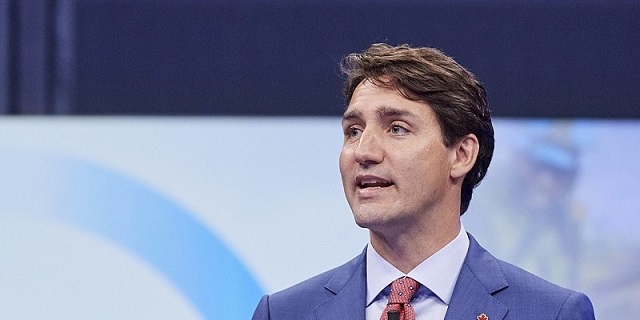Uncategorized
Trump’s shutdown proposal faces uncertain fate in Senate

WASHINGTON — President Donald Trump’s proposal to reopen the government, sweetened with immigration provisions aimed at mollifying Democrats but which have alienated some conservatives, is headed for Senate action, its prospects uncertain.
Senate Majority Leader Mitch McConnell will try to muscle through the 1,300-page spending measure, which includes $5.7 billion to fund Trump’s proposed wall along the U.S.-Mexico border, the sticking point in the standoff between Trump and Democrats that has led to a partial government shutdown now in its 32nd day.
Meanwhile, another missed
Senate Republicans late Monday unveiled the legislation, dubbed the “End The Shutdown And Secure The Border Act,” but its passage this week is by no means certain.
Republicans hold a 53-47 majority in the chamber but need Democrats to reach the usual 60-vote threshold for bills to advance. No Democrat has publicly expressed support for the proposal Trump announced over the weekend.
Senate Democratic leader Chuck Schumer’s office reiterated that Democrats are unwilling to negotiate any border security funding until Trump reopens the government.
“Nothing has changed with the latest Republican offer,” Schumer spokesman Justin Goodman said. “President Trump and Senate Republicans are still saying: ‘Support my plan or the government stays shut.’ That isn’t a compromise or a negotiation — it’s simply more hostage taking.”
The Republican plan is a trade-off: Trump’s border wall funding in exchange for temporary protection from deportation for some immigrants. To try to draw more bipartisan support, it adds $12.7 billion in supplemental funding for regions hit by hurricanes, wildfires and other natural disasters.
In exchange for $5.7 billion for Trump’s wall, the legislation would extend temporary protections against deportation to around 700,000 immigrants covered by the Deferred Action for Childhood Arrivals program, or DACA. Trump has tried dismantling the Obama-era program, which covers people who arrived in the U.S. illegally as children, but has been blocked so far by federal lawsuits.
That figure is substantially lower than the 1.8 million people Trump proposed protecting a year ago in a plan that also included other immigration changes and $25 billion to pay the full costs of building his wall. Trump’s proposal was among several the Senate rejected last February.
The new Senate bill would also provide three more years of temporary protections against deportation to around 325,000 immigrants in the U.S. who have fled countries racked by natural disasters or violent conflicts. Trump has ended that program, called Temporary Protected Status, for El Salvador, has which the most holders of the protected status, as well as for Honduras, Nicaragua and several other countries.
Democrats said Trump’s proposal for a three-year DACA extension didn’t go far enough and that he was simply offering to restore elements of immigration provisions he’d taken away.
Some on the right, including conservative commentator Ann Coulter, accused Trump of offering “amnesty.”
“No, Amnesty is not a part of my offer,” Trump tweeted Sunday, in response. He added: “Amnesty will be used only on a much bigger deal, whether on immigration or something else.”
While the House and the Senate are scheduled to be back in session Tuesday, no votes have been scheduled on Trump’s plan. McConnell spokesman David Popp said the GOP leader “will move” to vote on consideration of the president’s proposal this week. The bill includes funding for most domestic agencies.
House Democrats, meanwhile, are pushing ahead this week with their legislation to reopen the government and add $1 billion for border security — including 75 more immigration judges and infrastructure improvements — but no funding for the wall.
On Tuesday, Trump tweeted that Democrats are playing “political games” and repeated his claims that the wall is a solution to drugs and crime — although the Drug Enforcement Administration says only a small percentage of drugs come into the country between ports of entry.
“Without a Wall our Country can never have Border or National Security,” Trump tweeted. “With a powerful Wall or Steel Barrier, Crime Rates (and Drugs) will go substantially down all over the U.S. The Dems know this but want to play political games. Must finally be done correctly. No Cave!” he tweeted.
The impact of the government’s longest-ever shutdown continues to ripple across the nation. The longest previous shutdown was 21 days in 1995-96, when Bill Clinton was president.
The Transportation Security Administration said the percentage of its airport screeners missing work hit 10
The screeners, who have been working without pay, have been citing financial hardship as the reason they can’t report to work. Even so, the agency said it screened 1.78 million passengers Sunday with only 6.9
Asked in an interview on “Fox News Sunday” whether Trump’s Saturday proposal represented a “final offer,”
“Well, of course,” Pence said. “The legislative process is a negotiation.”
___
Associated Press writers Alan Fram and Andrew Taylor contributed to this report.
Jill Colvin And Lisa Mascaro, The Associated Press
Uncategorized
RCMP recruitment failure has Alberta advocacy group calling for Provincial Police Service

News release from Free Alberta Strategy (A Strong And Sovereign Alberta Within Canada)
“Make no mistake, we are paying for these services that we aren’t receiving. Alberta’s taxpayers are paying tens of millions of dollars for nearly 400 vacant RCMP officer positions – for boots that are not on the ground.”
A recent report from the Royal Canadian Mounted Police (RCMP)’s independent Management Advisory Board had findings that are nothing short of alarming:
“Federal policing has now arrived at a critical juncture of its sustainability, which present risks for the national security and safety of Canada, its people, and its interests,” says the report.
After over a year of diligent study, the Board has been tirelessly firing off flares, signalling to all who will listen: the very foundation of our national public safety apparatus may be at risk of faltering.
This is doubly problematic because, as you well know, the RCMP is also responsible for boots-on-the-ground policing in large parts of the country, including many rural and remote areas – including in Alberta.
Rural crime has been a longstanding issue in Alberta, and social disorder continues to make headlines nightly.
Alberta Minister of Public Safety, Mike Ellis, took to social media platform X (formerly known as Twitter) to express his opinion:
“The independent report finds the RCMP has struggled in recent years to recruit and retain regular members, a problem that’s particularly acute in federal policing. This is not about the hard-working men and women on the frontline: they are doing everything they can. The reality is the RCMP do not have enough officers to police communities in Canada effectively.”
Ellis has been ahead of this story for months now.
In March, Ellis stated that:
“… on average, Alberta has an RCMP officer vacancy rate of 20 per cent. This means that Alberta is only being served by 1,522 of the 1,911 RCMP officers that the federal government has authorized for Alberta.”
“Make no mistake, we are paying for these services that we aren’t receiving. Alberta’s taxpayers are paying tens of millions of dollars for nearly 400 vacant RCMP officer positions – for boots that are not on the ground.”
The consequences of this capacity crisis are far-reaching.
Not only does it jeopardize the safety of Albertans, but it also undermines the credibility of Canada’s federal police force on the international stage.
With limited resources and personnel, the RCMP’s ability to address pressing national and global security concerns is severely compromised.
The Management Advisory Board, created in 2019 by the federal government to provide external advice to the RCMP commissioner, set up a task force in the fall of 2022 to study the federal policing program.
Overall, the report says budget and personnel shortfalls have left the RCMP “operationally limited,” restricting the number of cases it can take on annually.
Here are some more highlights from the report:
“Canada and its people have already begun to see the repercussions of the federal policing program being stretched thin.”
“Federal policing’s overall eroding capacity may have implications for the credibility of Canada’s federal police force and its investigations on the international stage.”
“Ultimately, this may influence Canada’s overall approach and standing in international politics, including its ability to advance global priorities.”
Clearly, we cannot afford to wait any longer.
Municipalities can ease the burden on our national security services by establishing municipal policing.
Several cities in Alberta already have their own police authorities, and the provincial government is providing funding for others interested in exploring this option.
Grande Prairie is already in the process of establishing their own municipal police service.
No word on how many other municipalities have taken the government up on their offer.
Unfortunately, President of Alberta Municipalities Tyler Gandam (also Mayor of Wetaskiwin) is featured prominently on the National Police Federation’s “Keep Alberta RCMP” website.
Interestingly, the Keep Alberta RCMP website doesn’t mention the fact that the advisory board even exists.
It doesn’t mention the report.
The notion that our federal policing infrastructure teeters on the brink of instability while Gandam appears to be asleep at the wheel, is deeply disconcerting.
The safety and security of Albertans must remain our top priority.
We cannot afford to wait any longer.
The time has come for the province to take swift and decisive measures to bolster policing capabilities in Alberta.
It’s time for Alberta to seriously consider the establishment of an Alberta Provincial Police Service.
It has been one of the core tenets of the Free Alberta Strategy.
If you agree, please reach out to your municipality and ask them to take steps to protect your community.
Together, we can keep Alberta safe.
Regards,
The Free Alberta Strategy Team
P.S. We’re hoping you’ll consider contributing to our cause. Your generous donation helps us make a positive impact in our community. No need to worry about any hold-ups or threats here. We’re just passionate about making a difference, and your support goes a long way in helping us achieve our goals.
Uncategorized
Making Alberta a geothermal energy leader

Eavor announces it’s the #1 geothermal energy startup company in the world – January 2024
Alberta is creating Canada’s first geothermal test site to advance drilling innovation, reduce emissions and create jobs.
Geothermal energy uses naturally occurring heat within the earth to heat water and buildings and generate power, with few emissions or environmental impacts. Alberta has vast pockets of heat below ground, making the province Canada’s geothermal leader, but testing and developing new technologies can be a barrier for many companies. Unlike the United States, Japan and other countries, Canada does not currently have an open-access test site to help spur innovation.
Alberta is taking the first steps to create a new Alberta Drilling Accelerator. This groundbreaking facility would be the first of its kind in Canada, establishing Alberta as a global hub for geothermal technology. This will drive new innovations in geothermal and other clean energy projects that can reduce emissions and power communities around the world.
To kick-start the project, the Alberta government is investing $750,000 to conduct a feasibility study led by Calgary-based Eavor Technologies and other stakeholders. The study is the first step in assessing the proposed facility. It will include identifying a site, business planning, research on the governance model, an economic impact analysis and stakeholder engagement that will lay the groundwork for the initial planning stages of the project.
“Alberta has been a global energy leader for more than a century, renowned for our skilled workforce, innovation and one of the largest oil and gas reserves on the planet. The proposed Alberta Drilling Accelerator presents enormous potential to help our province lead the next wave of energy projects here at home and around the world that reduce emissions, create jobs and enhance energy security.”
The Alberta Drilling Accelerator would help companies test out and develop new geothermal drilling techniques or technologies to reduce emissions and drive growth across the clean energy sector. It would be an open-access, technology-agnostic drilling test facility capable of drilling in challenging environments, including deep depths, high temperatures and different rock types.
The accelerator also would help speed up the development of carbon capture, utilization and storage; helium; critical minerals; and other clean technologies and commodities that rely on Alberta’s drilling sector. All of this helps attract investment and bring new technologies to scale in Canada.
“With cumulative geothermal investment poised to reach $1 trillion by 2050, a geothermal arms race is very much underway to commercialize novel drilling techniques that accelerate geothermal development – exhibited by testing facilities in the United States, China and Iceland. As Canada’s first geothermal test bed, the Alberta Drilling Accelerator will help bring geothermal technologies to scale, supporting companies like Eavor. We commend the Government of Alberta for this bold initiative.”
“We are proud to witness Eavor, a CDL-Rockies alumni company, create new opportunities for innovators like themselves to advance the adoption of energy transition technologies like geothermal. The Alberta Drilling Accelerator will further solidify Alberta’s position as a leader in the global sustainable energy landscape.”
If the feasibility study shows the facility is economically and environmentally viable, and if the project is approved by the Alberta government, the facility will start taking shape at the selected site and drilling could start as early as 2025.
“Canada is home to the most advanced drilling technology in the world. Not only do our members support the responsible development of oil and gas, but we are integral in the extraction of new energy resources like geothermal and critical minerals. Our workers are at the epicentre of Canada’s energy transformation. Our people, technology and processes are leading the way towards a more diverse energy future. The Alberta Drilling Accelerator is a government-enabled policy approach to expand Alberta’s drilling capacity and reach its full potential as the world’s most diverse and technologically advanced producer and exporter of sustainable energy and critical minerals.”
“The Alberta Drilling Accelerator is a testament to Alberta’s innovative and entrepreneurial spirit. Leveraging our oil and gas sector expertise, Alberta is poised to become the global leader in developing new geothermal technologies that will play an integral role in reducing emissions while supporting job creation.”
Quick facts
- The Canadian Association of Energy Contractors estimates that one active drilling rig, whether drilling for natural gas or geothermal, creates approximately 220 direct and indirect jobs and
$1 million in tax revenue. - In 2019, Eavor received $2 million in provincial funding through Emissions Reduction Alberta and Alberta Innovates for the world’s first closed-loop geothermal system.
Related information
-
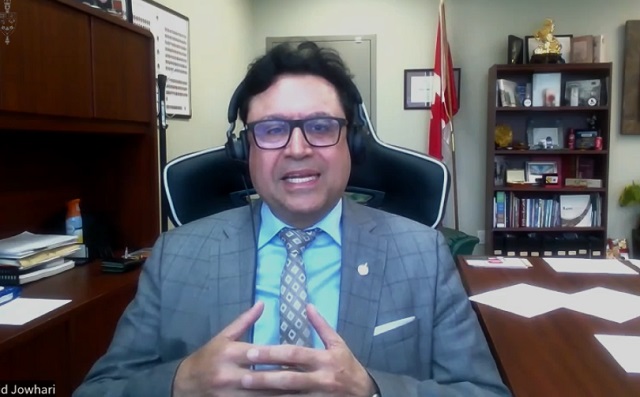
 Addictions13 hours ago
Addictions13 hours agoLiberals shut down motion to disclose pharma payments for Trudeau’s ‘safe supply’ drug program
-
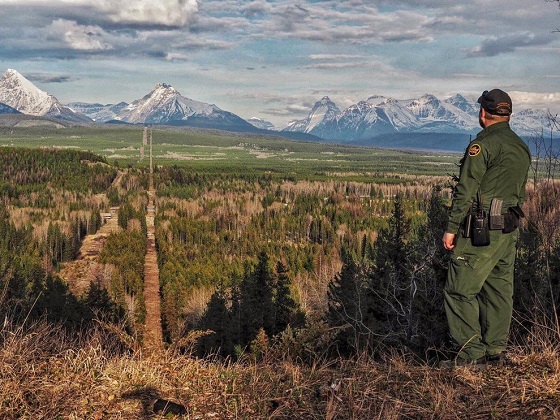
 Crime2 days ago
Crime2 days agoThe US Canadian border: Greatest number of terrorist watch list individuals being apprehended at northern border
-

 Energy5 hours ago
Energy5 hours agoTech giants’ self-made AI energy crisis
-

 Energy1 day ago
Energy1 day agoNew Report Reveals Just How Energy Rich America Really Is
-
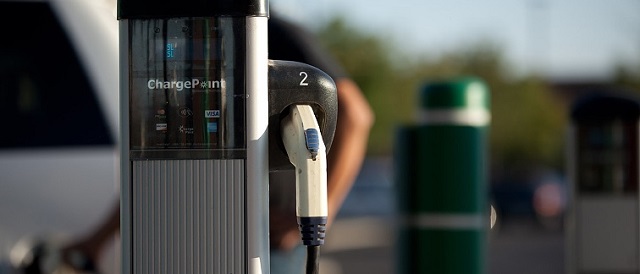
 Automotive1 day ago
Automotive1 day agoBiden’s Climate Agenda Is Running Headfirst Into A Wall Of His Own Making
-

 Economy1 day ago
Economy1 day agoFeds spend $3 million to fly 182 politicians and bureaucrats to climate conference
-

 espionage8 hours ago
espionage8 hours agoThe Scientists Who Came in From the Cold: Canada’s National Microbiology Laboratory Scandal, Part I
-
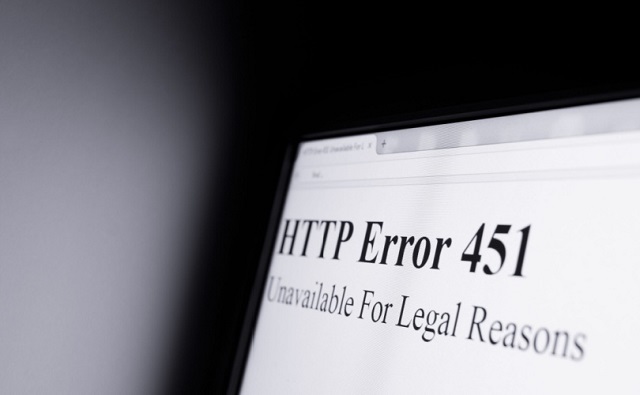
 National6 hours ago
National6 hours agoTrudeau’s internet censorship Bill C-11 will not be implemented until late 2025


